
[rating=3] The tragedies of Stonewall and the Pulse nightclub mass shootings brought to light the resilience of people in the LGBTQ+ community. Such is the main theme behind “Laced”, written by Sam (Samantha) Mueller and directed by Lexi Saunders. In this world premiere production, three characters—Cat (Collin Quinn Rice), Audra (Mariah Copeland), and Minnow (Daniella Martinez)—work together as bartenders at a queer bar that has been trashed overnight with all sorts of hateful messages spray painted throughout. The story starts out a bit like a whodunnit, with the three trying to figure out exactly when and how this act of vandalism might have occurred and who might have been responsible. Although none of them were physically present to witness the crime in progress, the psychological effect on all of them is palpable, and it ties their fates together. Over time, the story morphs into each of them telling personal stories about their unique sexuality, sexual orientation, and related experiences. When each of them speaks their own truth, we understand the complexities involved with identifying as being queer. The name “Laced” stems from the fact that the three employees have joined forces to fortify themselves as a group living an alternative lifestyle. “We are undefeatable,” they say in the face of hate and discrimination.
The tragedies of Stonewall and the Pulse nightclub mass shootings brought to light the resilience of people in the LGBTQ+ community. Such is the main theme behind “Laced”, written by Sam (Samantha) Mueller and directed by Lexi Saunders. In this world premiere production, three characters—Cat (Collin Quinn Rice), Audra (Mariah Copeland), and Minnow (Daniella Martinez)—work together as bartenders at a queer bar that has been trashed overnight with all sorts of hateful messages spray painted throughout. The story starts out a bit like a whodunnit, with the three trying to figure out exactly when and how this act of vandalism might have occurred and who might have been responsible. Although none of them were physically present to witness the crime in progress, the psychological effect on all of them is palpable, and it ties their fates together. Over time, the story morphs into each of them telling personal stories about their unique sexuality, sexual orientation, and related experiences. When each of them speaks their own truth, we understand the complexities involved with identifying as being queer. The name “Laced” stems from the fact that the three employees have joined forces to fortify themselves as a group living an alternative lifestyle. “We are undefeatable,” they say in the face of hate and discrimination.
Unfortunately, the tale is told much too unevenly, with too many flashbacks and flashforwards. It gets confusing when the audience has to put so much effort into following all these moves in time and thought. At some point, we no longer know if we’re dealing with actual happenings or subjective reflections on the recent past. The presentation makes more sense when we get to the end and see that the timeline doesn’t really matter all that much. But all this back-and-forth distracts us from the larger question of whether the characters ought to rehash the trauma of what just happened or simply move on with their lives.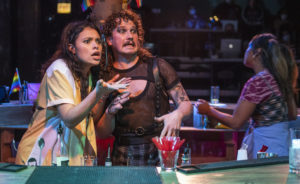
When the focus shifts to each of the bartenders discussing their personal lives, there is way too much explaining of their relationships with missing or absent people. For example, Minnow has a lesbian relationship with the owner Maggie. But when Maggie has suddenly skipped town, Minnow, by default, has been left in charge of running the bar. We are told about all of this but never see any of it. We never witness their loving relationship. Another example is that Audra tells us about her relationship with her boyfriend, but again we don’t learn about any of this first-hand. Hearing too much of a one-sided account prevents the audience from getting a full portrait of each of the characters on stage. Having are too many absent characters in a play is problematic especially when they are critical to the emotional development of those who are present before us.
Finally, more visuals are needed to back up the story and draw out the audience. Minnow, it seems, was the first person on the scene after vandalism happened, and she cleaned up much of the bar before the others showed up, so the main signs left of the destruction are homophobic slurs and a small “memorial” to the event. That’s the scene we see the moment the show starts. But the story could be made much more powerful if the lights had faded to black at the beginning of the show and we would hear the sound of window glass being smashed and a door being pried open. Then when the lights come up, it would have been very dramatic to have seen the three characters come upon the vandalized bar at once. I wanted to see broken beer and liquor bottles and other types of glass on the floor. I wanted to see the stage littered with upside-down chairs and broken bottles of ketchup and mustard with their contents oozing out, mixed in with coffee grounds. I wanted to see more raw emotion on the part of the actors, with them crying and screaming and hugging each other when they saw the damage, rather than seeing this sanitized version. Minnow and the others could have together cleaned up some portion of the mess in the presence of the audience. This would have created a greater bond between the three characters and provided a much better frame of reference for their personal confessions and recollections.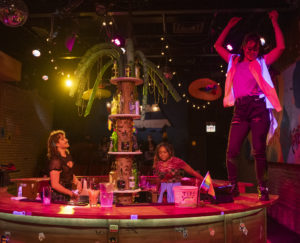
Although I would have preferred to see a more vandalized set, Sydney Lynne’s scenic design is good for what it is: the ability to be quickly and easily transformed from a disaster zone into a location where the three characters can actively tend bar. What makes this show special, however, is the superior lighting by Heather Sparling. Changes in lighting signify the transition between scenes and each character’s recollections and changes in mood and temperament. Sound design by Thomas Dixon is great.
The performance demonstrates the importance of queers needing to build up their personal armor to fend against hateful attacks by ignorant and vile criminals. But rather than focusing on the horror of hate and the pointless vandalism, the audience tends to focus a bit too much on the humorous one-liners plus the nicely suggestive sexual moves and the fun dancing, thanks to the fine work of choreographer and assistant director Jacinda Ratcliffe. While I enjoyed the lighthearted sequences that featured the mechanical way of putting together a drink for a customer, sometimes this took away from the thread of the tale. If handled properly, the contraposition of polar opposite settings and feelings could have been excellent. Instead when the timeline jumps around so much, the characters’ heartfelt confessions and reflections are not as impactful as they otherwise might have been.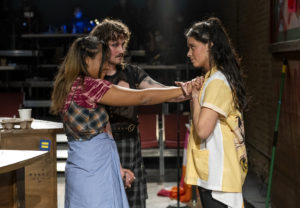
About Face Theatre’s production of “Laced” is currently playing through April 16, 2022, at The Den Theatre, 1331 N. Milwaukee Avenue, in Chicago.
Tickets range from $5 to $35, and there are limited quantities available at each pricing level.
(Note: The production team would be greatly appreciative if you were to support the performance by paying the full price of $35, if you can afford to do so.)
Performance schedule:
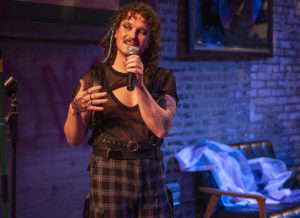 Thursdays, Fridays, and Saturdays – 7:30 p.m.
Thursdays, Fridays, and Saturdays – 7:30 p.m.
Sundays – 3:00 p.m.
Open captioned performance: Sunday, April 3rd, 3:00 p.m.
Note that certain performances have post-show discussions. Please check the calendar for details https://aboutfacetheatre.com/events/.
To purchase tickets or to learn more about “Laced” and other shows and initiatives being offered by About Face Theatre, go to https://aboutfacetheatre.com.
COVID restrictions are currently in effect at The Den Theatre. Please visit https://aboutfacetheatre.com/dentheatre/#covid-safety-rules to obtain the latest guidelines.
(Note that directions to the theatre are on the same webpage!)
Donations in support of About Face Theatre are always welcome! Go to: https://aboutfacetheatre.networkforgood.com/projects/128530-website-donation to find out how you can help.
To see what others are saying, visit www.theatreinchicago.com, go to Review Round-Up and click at “Laced”.


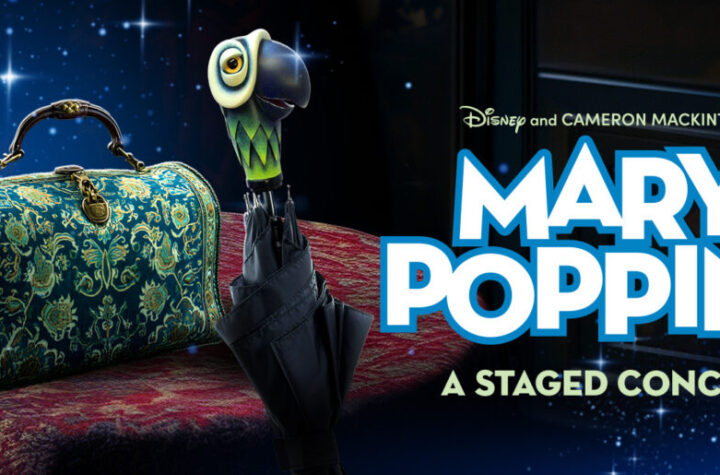

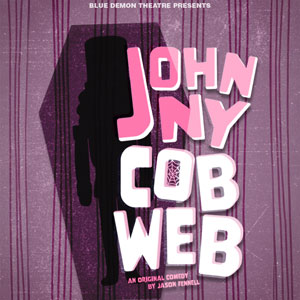
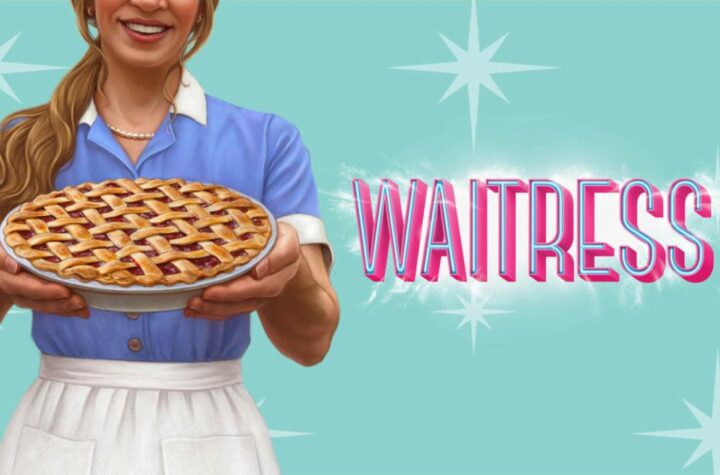
More Stories
“Mary Poppins : A Staged Concert” reviewed by Julia W. Rath
” I and You”
“Johnny Cobweb” reviewed by Mark Reinecke